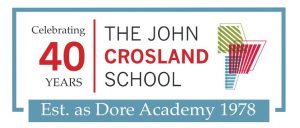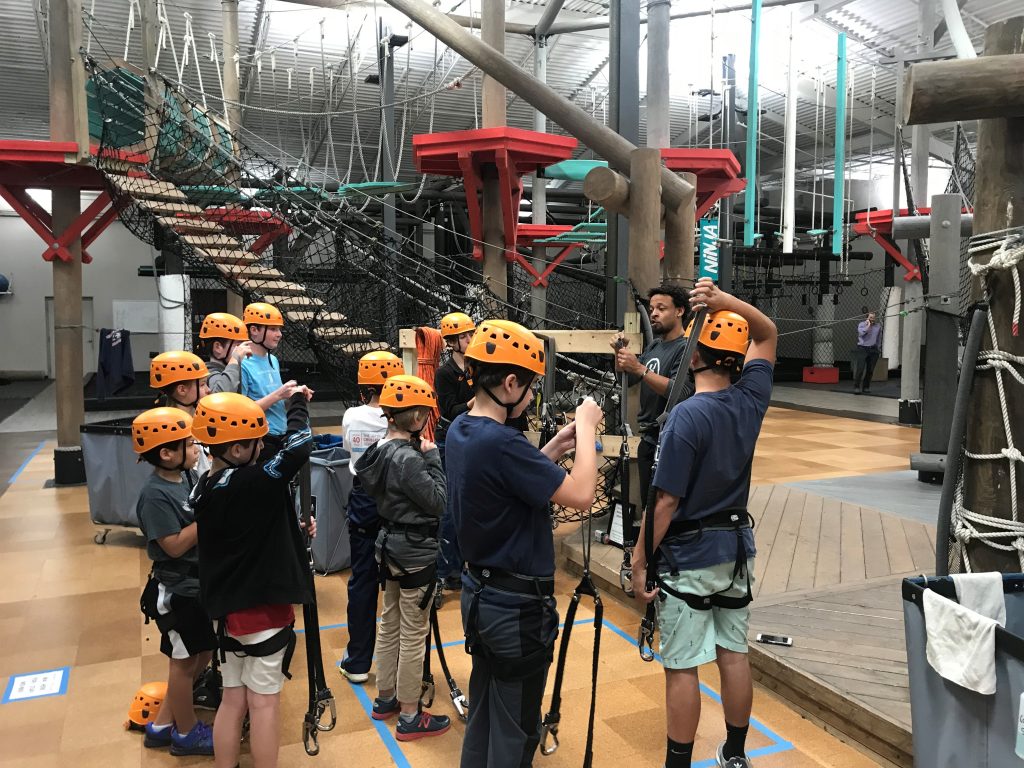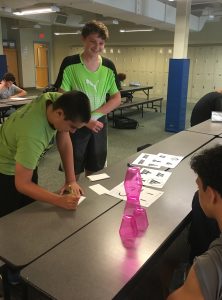By Smarty Guest Blogger, Anne Jaeger, Director of Middle School, The John Crosland School
It’s a wonderful thing to work at The John Crosland School and SEE students happy. Many of our students dash right into the building in the morning…smiling. Our parents often report to us that their children have finally found a school home after years of school angst and failure. Our students belong in this school community, our teachers and staff believe in them, and they succeed. I want to know more, so I’m digging deeper. How will our students believe in themselves and in their abilities? Does belief in oneself drive motivation and thus…achievement?
I decided to study and apply principles of a growth mindset, established by Carol Dweck, Stanford psychologist to The John Crosland School mission, to our programming and to our teaching. Dweck defines a growth mindset as follows: “In a growth mindset, people believe that their most basic abilities can be developed through dedication and hard work—brains and talent are just the starting point. This view creates a love of learning and a resilience that is essential for great accomplishment[.]” Carol S. Dweck, Mindset: The New Psychology of Success. (Ballantine Books, 2006) Dweck’s studies show that when students believe that learning is the goal versus attaching to a fixed outcome, their motivation to achieve increases.
The John Crosland School proudly adopted its own growth mindset this year as staff and teachers realized that students who have needs in working memory, impulse control, mental flexibility areas must understand the joy of the learning process versus the defeat of the final answer, the mark on a paper, the grade on a report.
1. Skills are learned and earned, not given.
2. Opportunities to learn in different ways are all around us.
3. The key to success is EFFORT; unlock potential with an open mind.
4. Challenges will be embraced…… NEVER GIVE UP.
5. Expect to learn and grow from mistakes.
6. Be inspired by the success of others and appreciate feedback.
As we integrate these traits into our programming, we consider the students we serve and the learning power they can possess:
1. Students who have not been successful in the past: This could apply to any student, but those who have experienced academic failure are some of the most in need of the growth mindset. Grades themselves are much more “fixed” than “growth” when it comes to mindset. An F on a paper or for a class can feel very final and hard to overcome in the future. Once a student feels like a failure, it is hard to rise back up and to decide to try again.
The Power of YET: We must acknowledge, emphasize and reinforce the powerful idea of not knowing something yet versus the self-defeating idea of not knowing something at all. We teach children to find joy and possibility in the questions and the problems themselves.
2. Students with learning differences: This group of learners is probably the most in need of a growth mindset. When students have to achieve pre-set grade level measures, regardless of their ability level, students in special education settings are set up to fail. Since often maintenance, application and generalization is a challenge for these students, many of them give up on themselves early in their educational careers.
3. Gifted students/Twice Exceptional students: Students who are high achieving and intellectually exceptional often struggle with the concept of “growth.” Students who may struggle in school because of social-emotional and/or communication needs but who are also intellectually exceptional often struggle with the concept of “growth.” When faced with a challenging situation beyond their skills sets or when faced with setbacks, these students can become easily frustrated—even to the point of giving up.
As we grow as a school this year, I am finding creative and consistent ways to spread the good news of the growth mindset to our staff, students and parents. I am learning that the possibilities are as vast and inspiring as our children’s minds…such a wonderful thing to smile about.
To learn more about the growth mindset, please refer to the following resources, or contact Anne Jaeger at ajaeger@johncroslandschool.org for more information!
Parent Resources:
https://www.ted.com/speakers/carol_dweck
www.Mindsetworks.com
www.BigLifeJournal.com
www.Edutopia.org
www.PBSkids.org
www.socialthinking.com
Salt in His Shoes by Doloris Jordan
About the Author:
Anne Jaeger joined The John Crosland School from The Epiphany School of Charlotte where she taught math and social communications skills to middle-grade students with Asperger’s syndrome, autism spectrum, and social communication needs. Anne holds both her Bachelor of Arts and Master of Education degrees in Special Education, and her teaching career began in 1994. Anne has taught nearly all subjects to students in kindergarten through high school in Lexington County, SC; Forsyth and Stokes County, NC and in Cabarrus County, NC. Anne lives in Concord and has two sons and she is passionate about working with parents and families. Anne also loves teaching sensory processing, social thinking, and executive functioning skills, and loves working at John Crosland!
More on The John Crosland School:
Click here for more information on Admissions.
Contact Info:
Portia York – Director of Advancement
pyork@johncroslandschool.org
Listen to our Smarty Podcast with Hallie Rojeski, Head of School HERE!
The John Crosland School
5146 Parkway Plaza Blvd.
Charlottte, NC 28217
704-365-5490 ext 709
Website
Blog
Facebook
Instagram: @johncroslandschool and @dogsofcrosland
Twitter: @croslandschool






